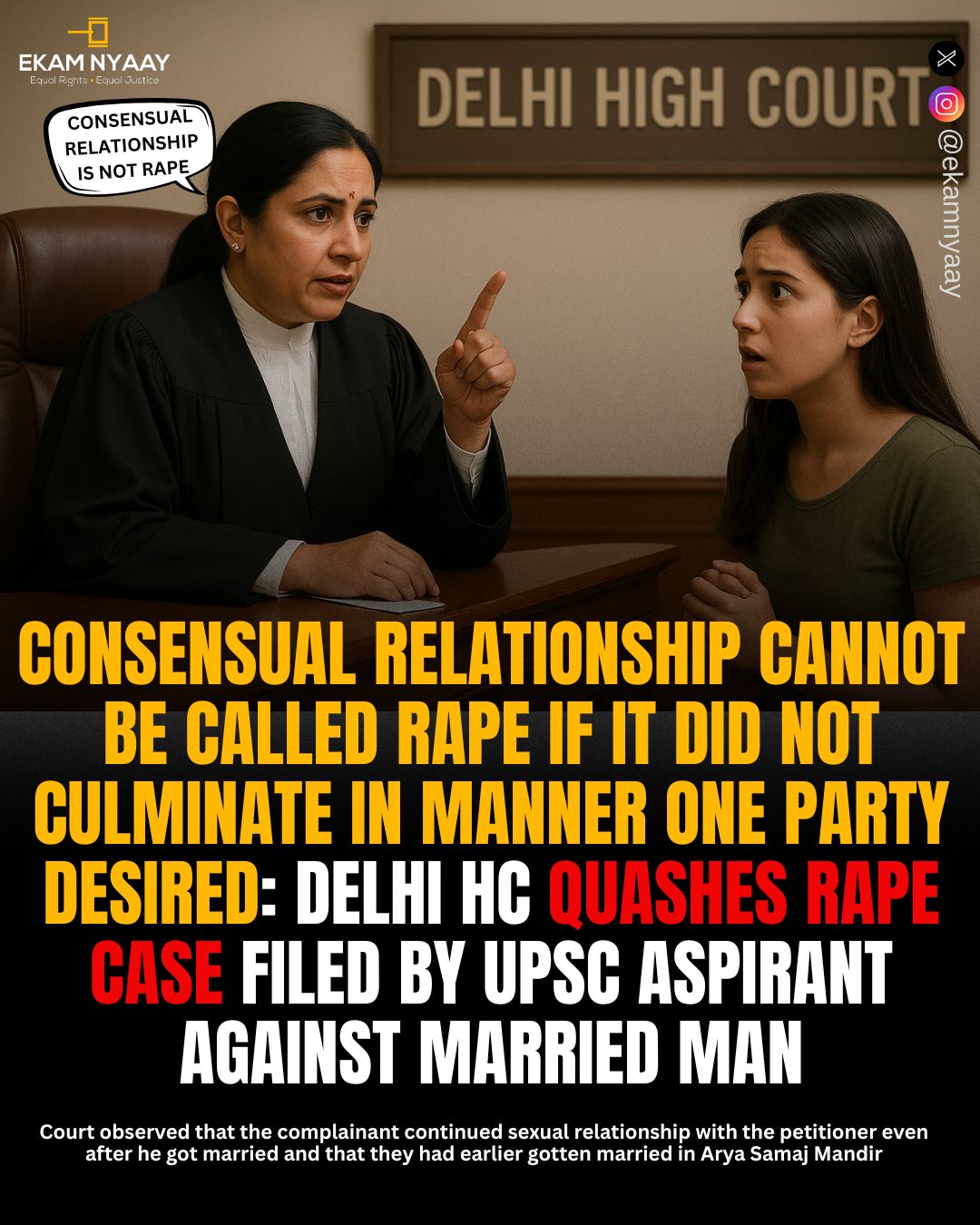
-
High Court


Delhi HC - Quashes Summoning Order, Terms it a Malicious Afterthought
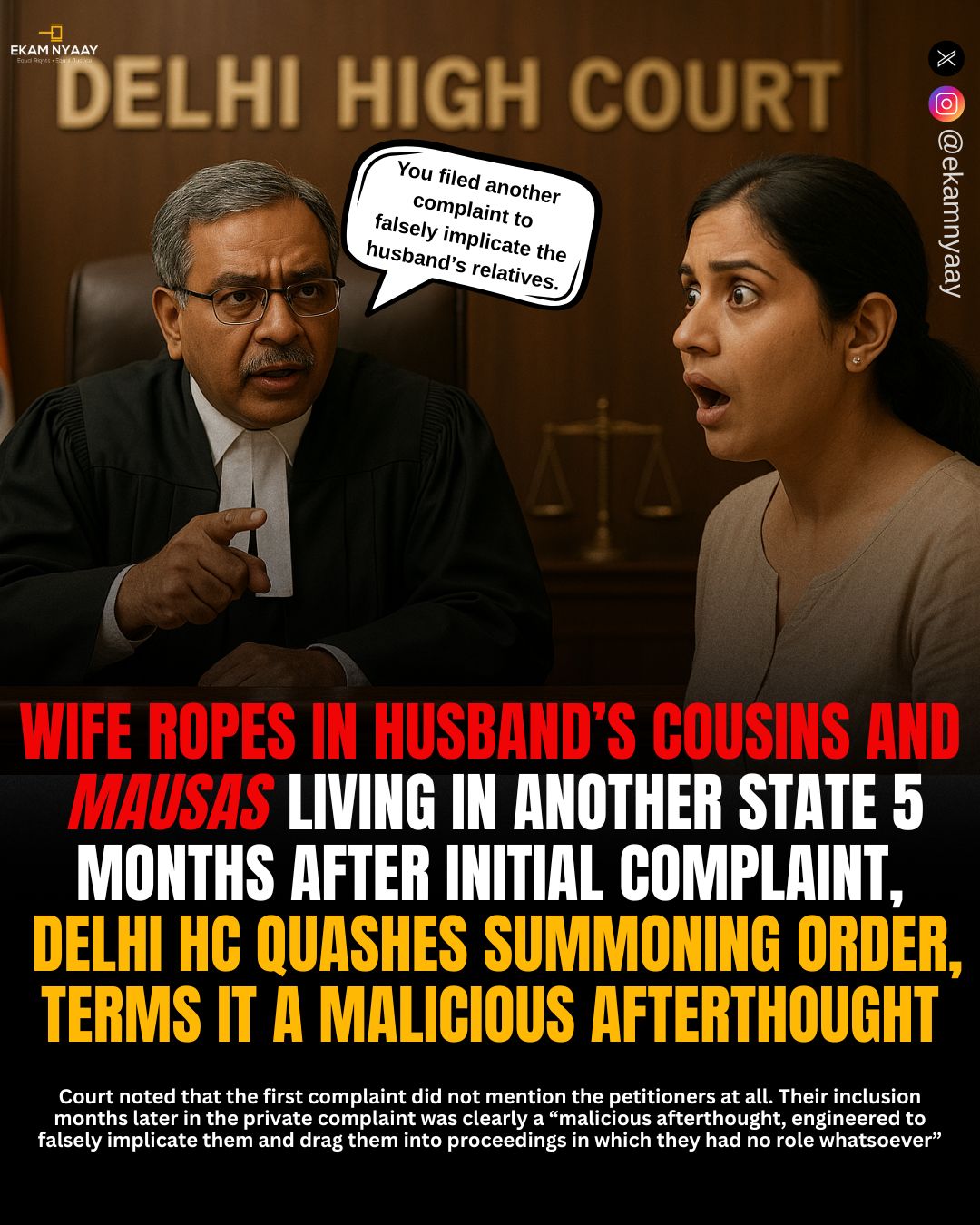
In Raj Kamal Yadav & Anr. v. Smt. Manju Yadav, Delhi HC quashed a summoning order passed against a husband’s distant relatives, observing that their implication was a malicious afterthought without any cogent evidence. Justice Arun Monga, while allowing the petitions, criticized the growing tendency in matrimonial disputes to rope in all relatives of the husband without attributing specific roles to them.
The facts reveal that Manju Yadav, after acrimony with her husband Harish Yadav, filed a series of complaints. Initially, in her complaint dated 18.12.2012, she named only her husband, in-laws, and a few others. None of the petitioners, who were her husband’s cousins and Mausas were mentioned. Later, in May 2013, she for the first time introduced their names in a vague and omnibus manner, leading to the private criminal complaint u/s 200 CrPC, where the Metropolitan Magistrate passed the impugned summoning order dated 04.06.2019.
The petitioners contended that they resided separately in Bijnor and Moradabad and had no role in the matrimonial discord. Their belated implication was mala fide, meant only to harass and exert pressure. They invoked Section 482 CrPC relying on precedents like Geeta Mehrotra v. State of U.P. and Neelu Chopra v. Bharti, stressing that vague allegations against distant relatives cannot be the basis for prosecution.
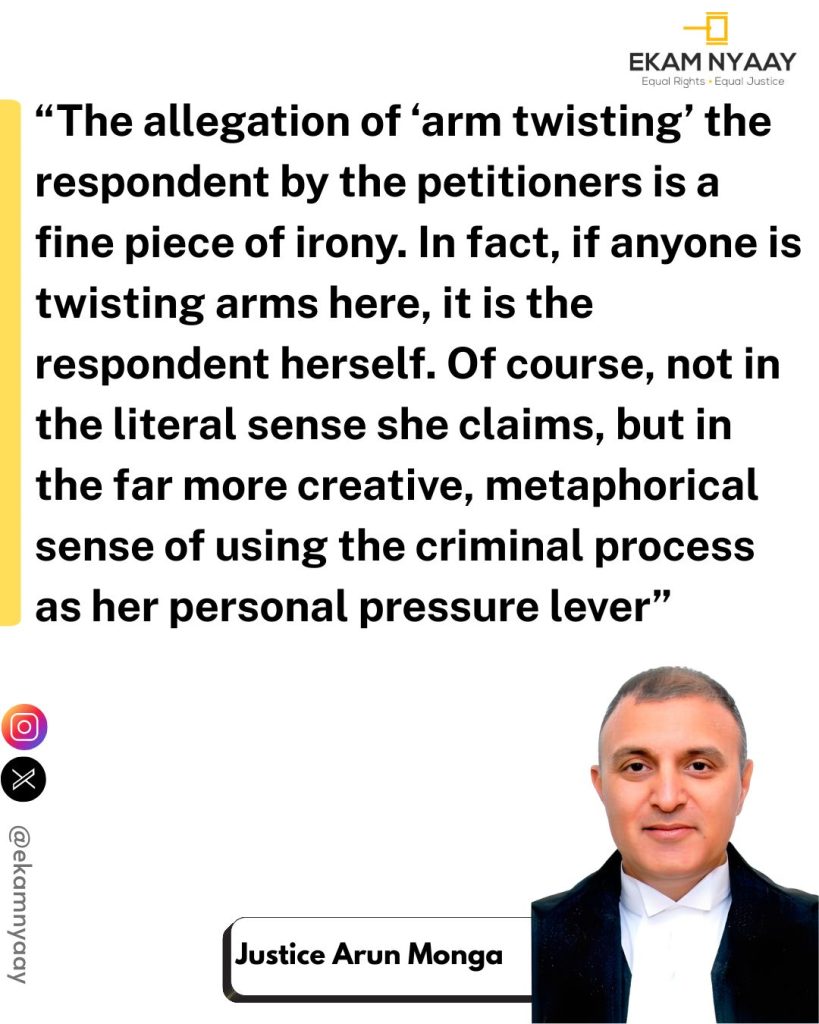
The wife’s case was that the relatives travelled all the way from U.P. to Delhi to “arm twist” her, assaulting her and causing minor injuries. She produced three witnesses her mother, father, and sister to support her claims. However, Court noted that they were not present during the alleged incident and their depositions amounted to hearsay.
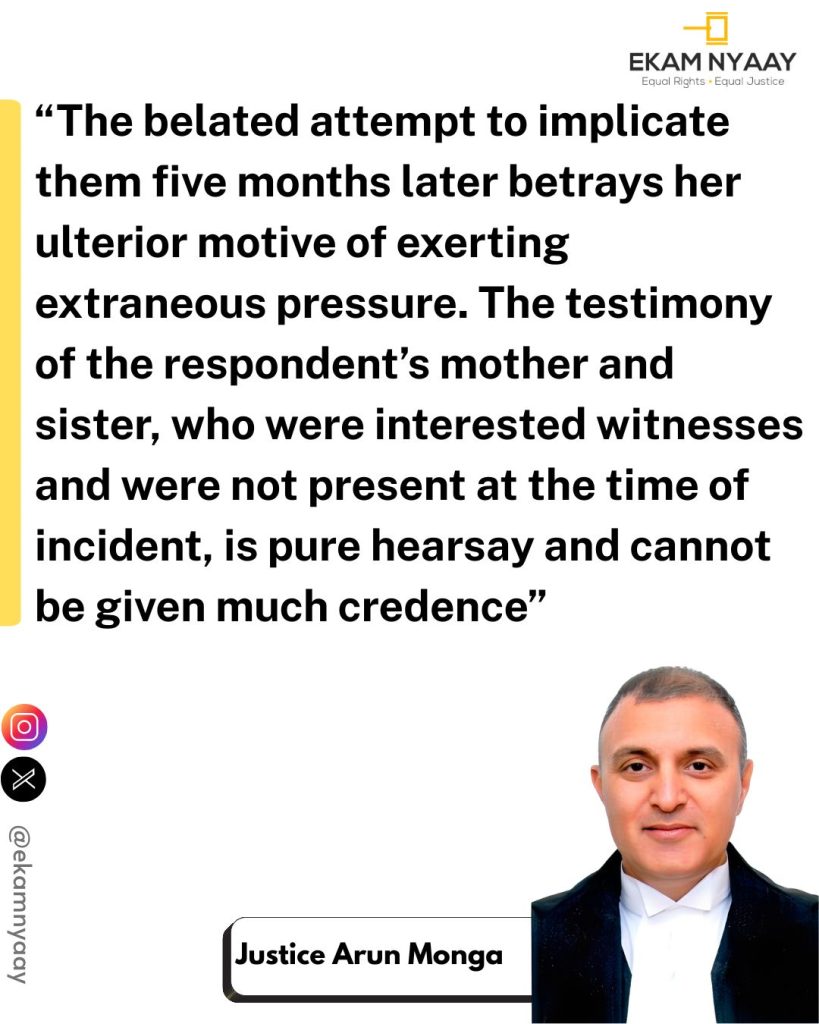
Court emphasized that the first complaint dated 18.12.2012 did not mention the petitioners at all. Their inclusion months later in the private complaint was clearly a “malicious afterthought, engineered to falsely implicate them and drag them into proceedings in which they had no role whatsoever”
Court reiterated the settled position that vague and omnibus allegations against distant relatives in matrimonial disputes amount to abuse of process. It rejected the wife’s counsel’s objection that the petition was barred as a “second revision,” clarifying that Section 482 CrPC can be invoked where palpable illegality exists.
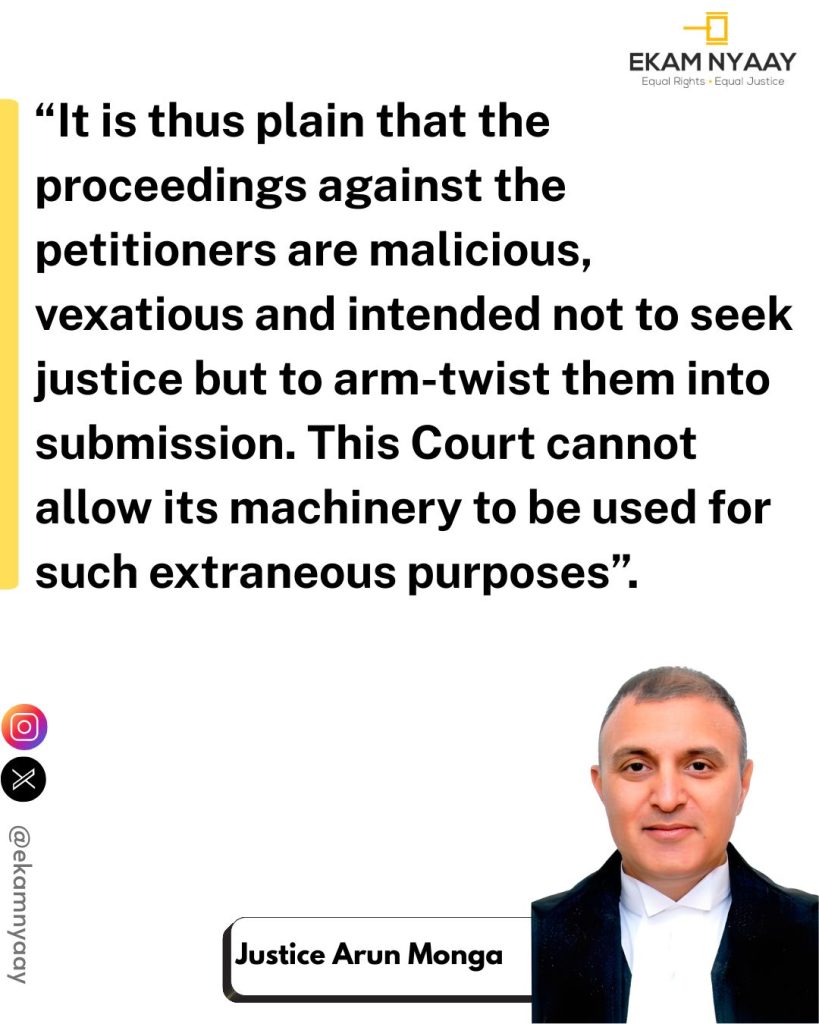
Accordingly, the summoning order dated 04.06.2019 and consequential proceedings against the petitioners (husband’s cousins and Mausas) were quashed, while the trial was allowed to continue against the other accused.
More In this segment
-
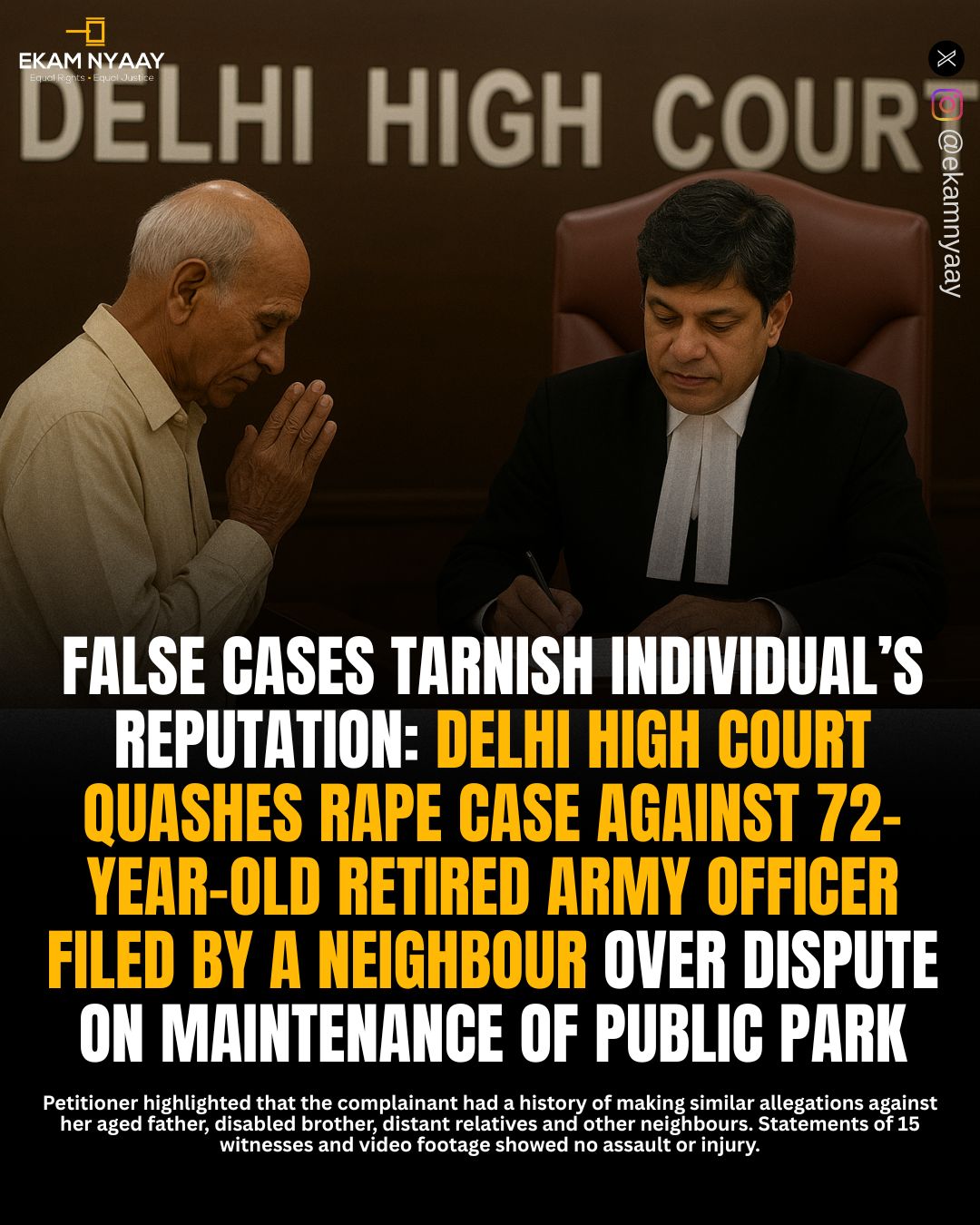
-
High Court
- October 2025
-
-
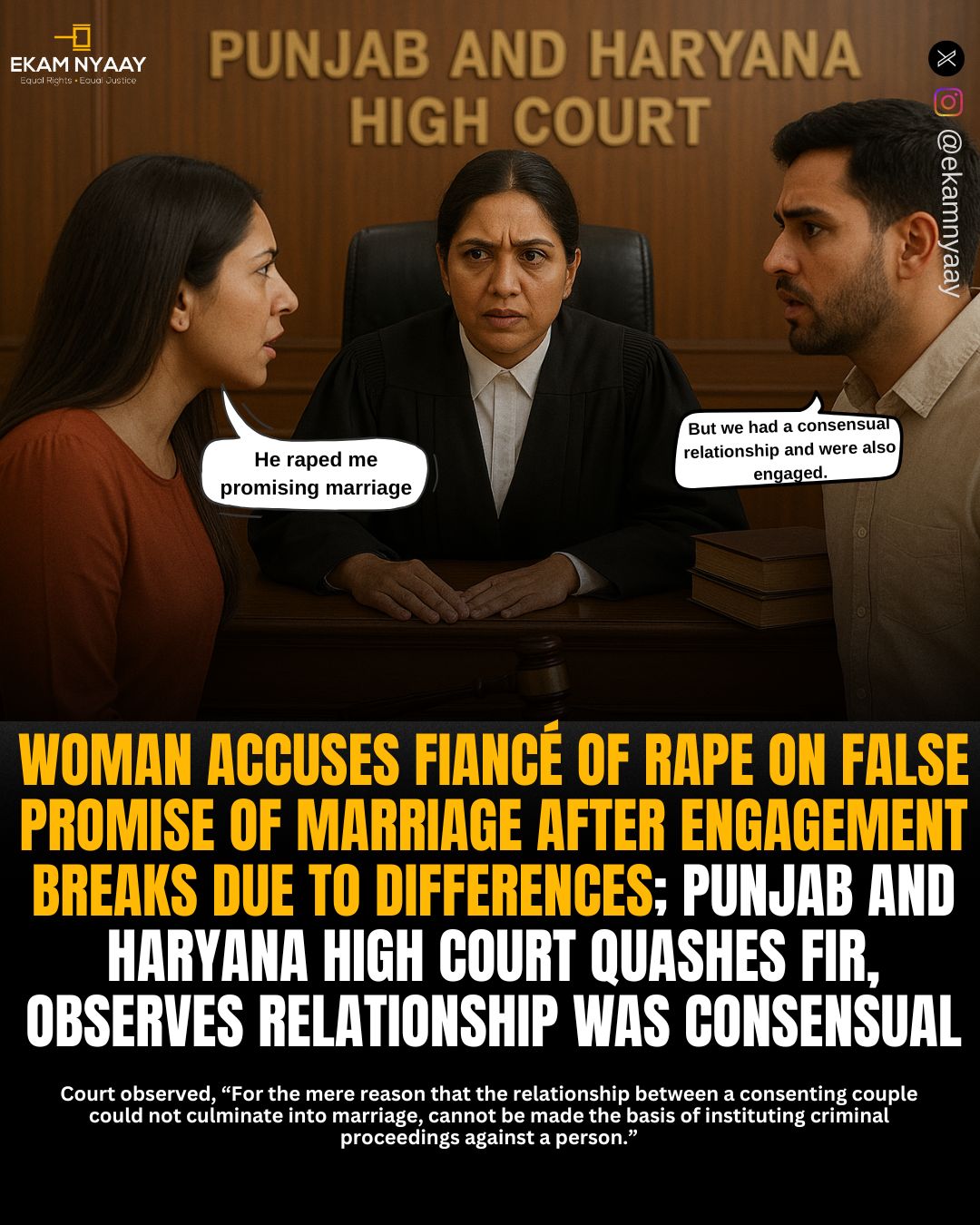
-
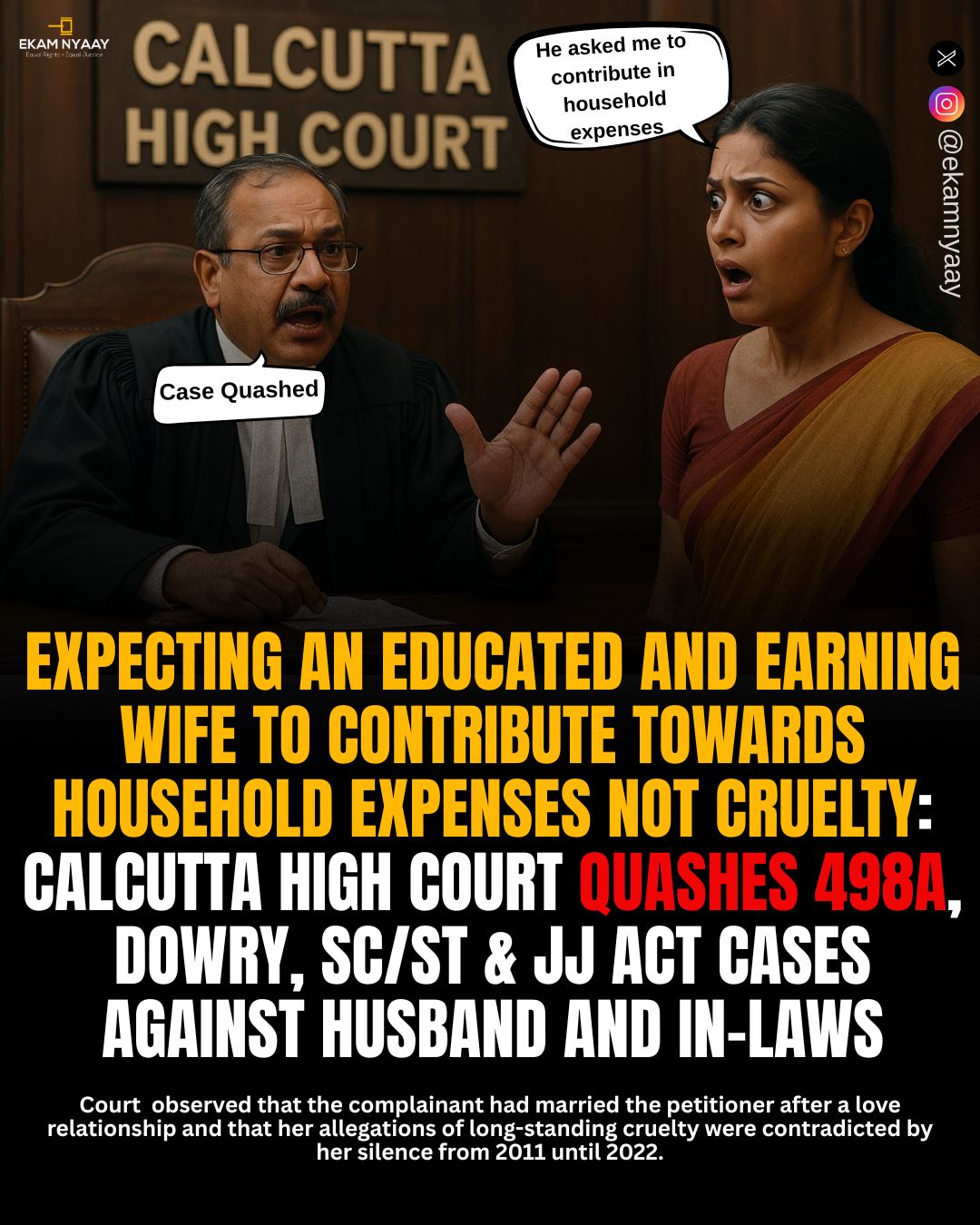
-
